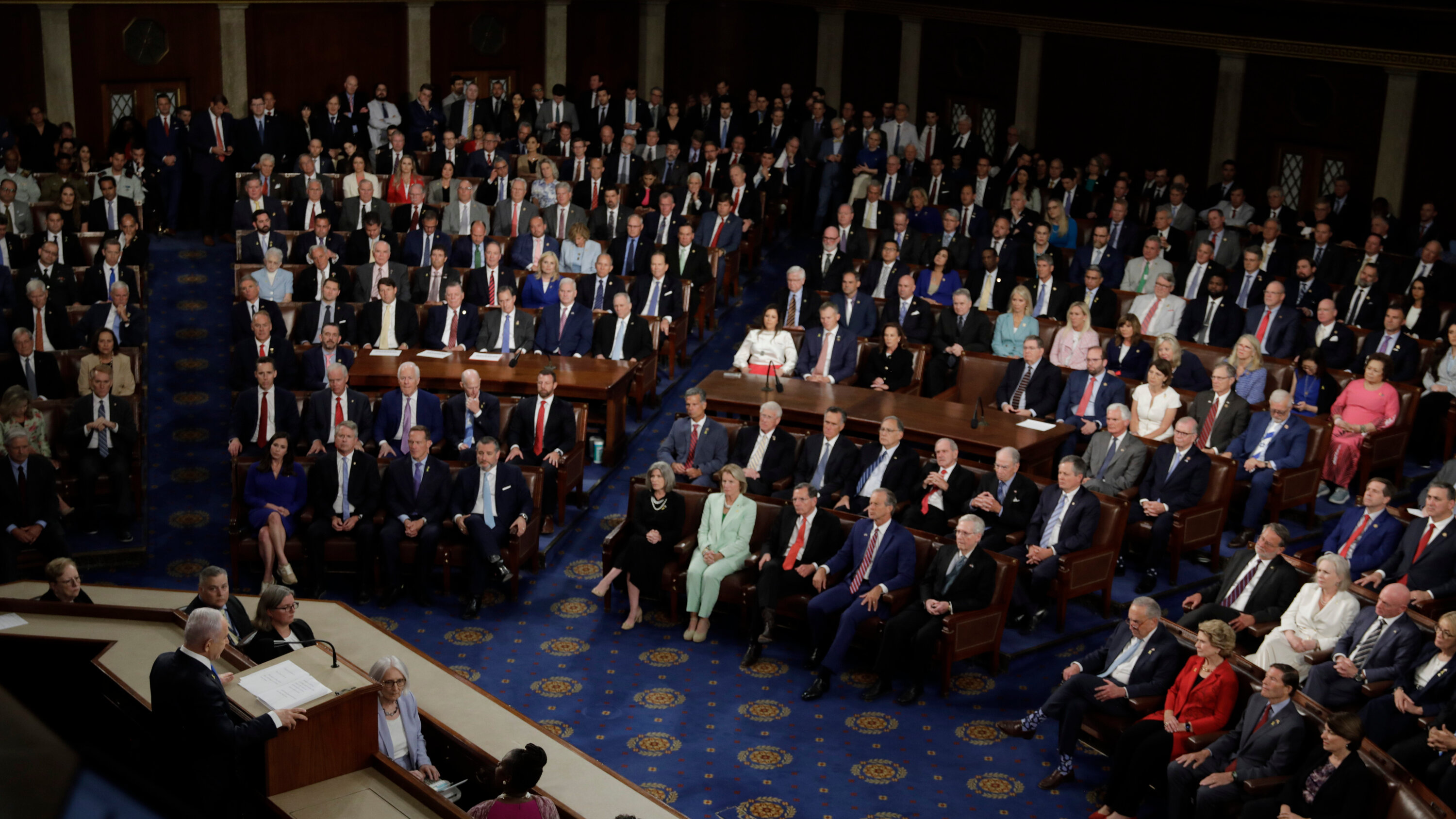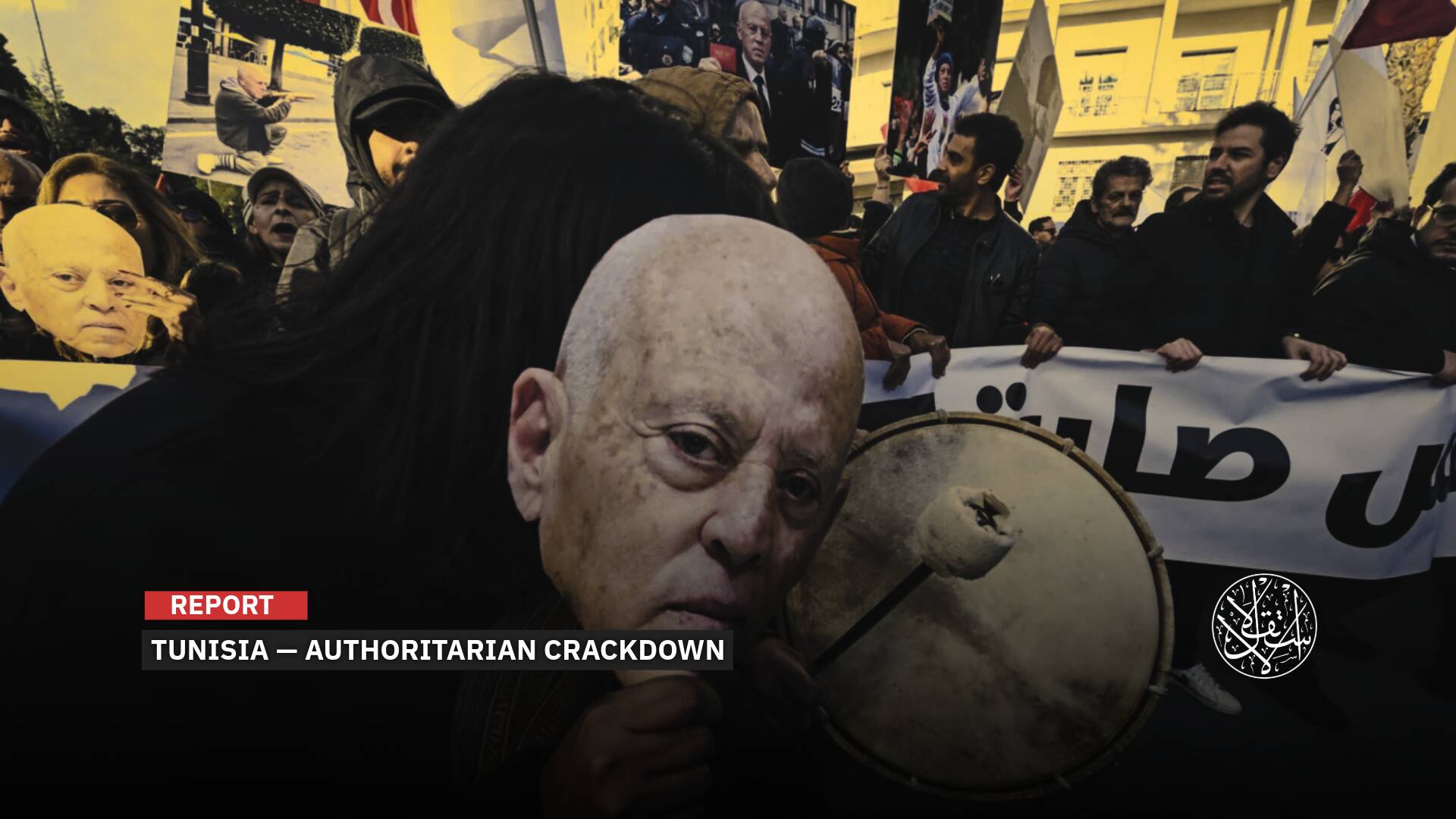'Shameful Session' :What Are the Implications of Netanyahu’s Speech to Congress?

The reception to Netanyahu's speech to Congress was mixed
Israeli Prime Minister Benjamin Netanyahu took center stage at Congress, while numerous parliamentarians exerted significant effort to reframe a genocide leader as a national hero.
Netanyahu's speech, delivered with an air of manufactured confidence and theatrical performance, combined together threads of religion, politics, and history.
The audience, comprising members of both the House of Representatives and the Senate, responded with strong applause approximately 50 times, reminiscent of an enthusiastic celebration.
The Israeli leader positioned himself as a steadfast national figure and a defender of both Israeli and American interests, urging Washington to provide the Israeli occupation with additional weaponry to sustain the ongoing Israeli aggression on Gaza, which he framed as a struggle between civilization and barbarism.
This marked Netanyahu's fourth address to Congress (following appearances in 1996, 2011, 2015, and now 2024), surpassing the record held by British Prime Minister Winston Churchill, who spoke before the US Congress three times.
As the dust settles, the question remains: did Netanyahu achieve the objectives he set out for his Washington visit?
Protesting Speech
The backdrop to Netanyahu’s speech was marked by significant developments in the American political landscape, most notably an assassination attempt on former President Donald Trump and President Joe Biden's withdrawal from the electoral race.
These events overshadowed Netanyahu's address, diminishing its anticipated impact.
Former US diplomat and peace negotiator Dennis Ross articulated this sentiment during an online symposium hosted by the Washington Institute for Near East Policy, stating, “There just isn't capacity in this town to be focused on this speech the way it might have been before.”
Netanyahu's speech was met with widespread protests across Washington, leading to heightened security measures around the Capitol to prevent demonstrators from approaching.
The demonstrations were fueled by opposition to Netanyahu's appearance before Congress, given his controversial status and the anticipated arrest warrant against him for war crimes.
Thousands of protesters, opposed to the ongoing conflict in Gaza, gathered near the Capitol waving Palestinian flags and chanting slogans in support of Gaza.
Banners denouncing Netanyahu and his policies were prominently displayed, with messages like “Netanyahu is a war veteran wanted for justice.”
The speech also faced significant political backlash. Many American political and parliamentary leaders called for a boycott of the address, protesting the decision to host Netanyahu, who is accused of genocide against the Palestinian people.
Critics argued that allowing Netanyahu to speak in Congress for the fourth time implicated the United States as a complicit partner in the alleged crimes, further tarnishing America’s global image.

National Figure?
Political researcher and activist Tariq Bodyafa said that Netanyahu employed deceit, coercion, and intimidation in his speech.
Firstly, he engaged in deceit. The Israeli Prime Minister portrayed a misleading narrative about the Gaza conflict, blaming the resistance for the violence and asserting that he had no intention of displacing Gaza's residents.
He framed his actions as a defense of civilization, drawing a stark comparison to Nazi Propaganda Minister Joseph Goebbels.
Secondly, according to Bodyafa, Netanyahu resorted to blackmail. He positioned his fight against Hamas and Iran as a defense not only of “Israel” but also of the United States and the broader Arab world.
“Netanyahu argued that combating Iran was synonymous with fighting America's most extreme and criminal enemy, insisting that the struggles and victories of Israel were inherently tied to those of the United States,” Bodyafa told Al-Estiklal.
Leveraging this stance, he called for an acceleration of American military support, claiming it would expedite the end of the war in Gaza and prevent a wider conflict in the Middle East.
Finally, Netanyahu employed intimidation. He warned of dire consequences for those who sympathized with Hamas and Iran, suggesting such support threatened American and international security, as well as the interests of Israel’s allies in the Middle East.
He dismissed American and international protesters against the war as “Iran's useful idiots,” accusing them of aligning with Tehran's oppressive regime.
Netanyahu urged for stringent measures against these protesters, portraying them as pawns of Iranian interests.
Netanyahu has long been adept at exploiting divisions between Republicans and Democrats to further his aims.
Analyst Anshel Pfeffer, writing in Haaretz, noted that each of Netanyahu’s four addresses to Congress has been at the invitation of Republican leadership during the tenure of a Democratic president, highlighting Netanyahu’s strategy of leveraging his Republican allies to assert his influence in the U.S., often beyond that of the sitting administration.
This latest speech stands out because it comes amid a protracted and unresolved conflict in Gaza. With the war now nearing the ten-month mark and no decisive victory in sight, Netanyahu is likely to intensify his efforts to garner support by playing on American political divisions.
His praise for former President Trump, despite past tensions, underscores this tactic.
Netanyahu praised Trump for his actions favorable to the Israeli occupation, such as recognizing the Israeli occupation’s sovereignty over the Golan Heights, moving the U.S. embassy to Jerusalem, and confronting Iran.
Experts suggest that Netanyahu’s rhetoric, which appeals to both emotional and rational sensibilities, and his adept manipulation of the partisan divide in America, demonstrate his keen understanding of the current political climate.
His speech aimed to rally both Republican and Democratic support, despite the deep-seated divisions.

Democrats’ Boycott
Despite efforts by Netanyahu's Republican supporters and a significant media campaign, the reception to his speech was mixed.
CNN reported that over 50 Democrats boycotted the session, reminiscent of the response to his 2015 speech.
Andrew Solender of Axios noted that about half of the Democratic members of the House and Senate were absent during Netanyahu’s address.
Notable absentees included Senators Dick Durbin, Tim Kaine, Jeff Merkley, Brian Schatz, and Senate Appropriations Committee Chair Patty Murray.
Among those present, some openly criticized Netanyahu. Congresswoman Rashida Tlaib, of Palestinian descent, held a sign labeling Netanyahu a "War Criminal" and "Guilty of Genocide." Jewish Representative Jerry Nadler was seen reading a book during the speech, signaling his dissent.
Congresswoman Alexandria Ocasio-Cortez challenged claims of unanimous support in the chamber, tweeting that many representatives had walked out during the speech.
She suggested that the appearance of full attendance was bolstered by non-members filling the seats, akin to practices at award ceremonies to maintain the illusion of a packed house.
Overall, Netanyahu's attempt to harness American support faced significant resistance and highlighted the polarized state of U.S. politics regarding his policies and leadership.
Sources
- Netanyahu is presiding over a sharp decline in the US’s pro-Israel consensus
- Fact-checking Israeli Prime Minister Benjamin Netanyahu’s address to Congress
- In fiery speech to Congress, Netanyahu vows ‘total victory’ in Gaza and denounces US protesters
- Around half of Congress' Democrats skip Netanyahu speech
- As Netanyahu addresses Congress, agony in Gaza endures










